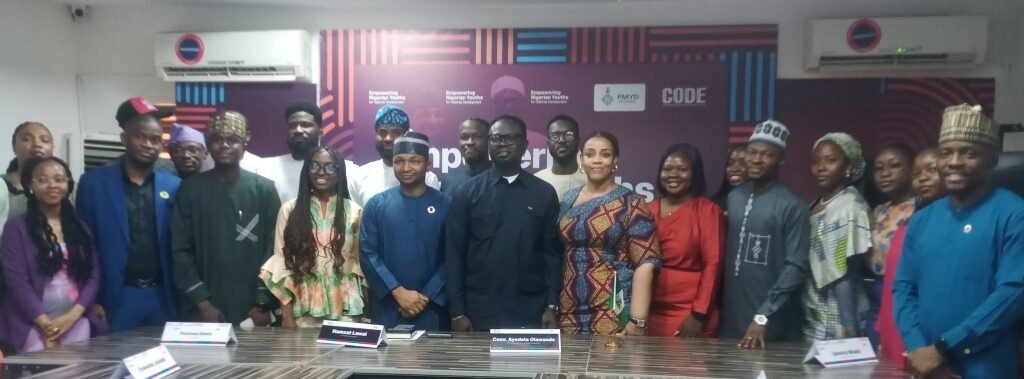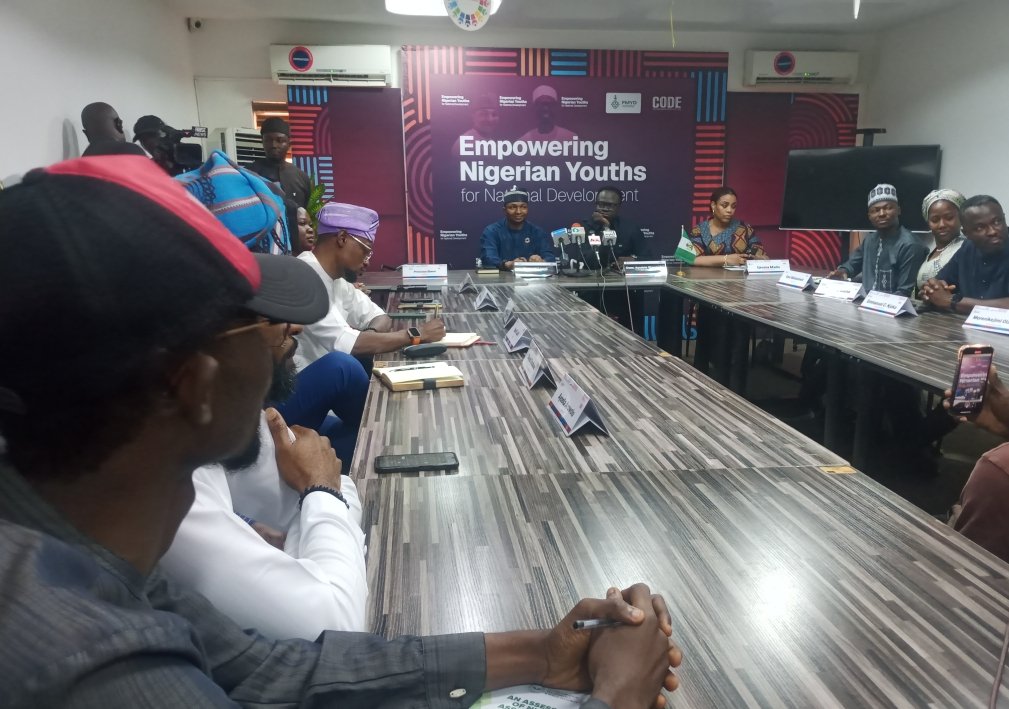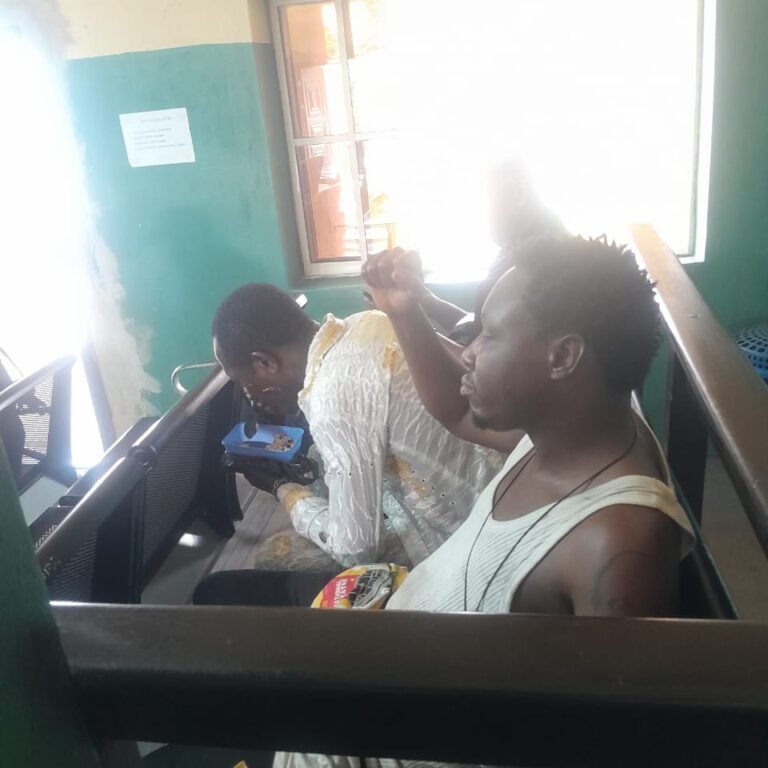
By Ameh Gabriel
Abuja, Nigeria – May 20, 2025. A new chapter in youth development appears to be unfolding in Nigeria, as the Federal Ministry of Youth Development and key Civil Society Organizations (CSOs) converged at a roundtable discussion at connected development (CODE) premises in Abuja to chart a sustainable path forward for the nation’s youth.
The roundtable themed “Empowering Nigerian Youths for National Development: From Promises to Progress,” the session featured far-reaching proposals aimed at addressing systemic barriers and unlocking the full potential of Nigeria’s dynamic youth population.

Speaking at the event, the Minister of Youth Development, Comrade Ayodele Olawande, outlined an ambitious vision, which includes the creation of a Youth Development Bank to provide tailored financial support for youth-led enterprises, the reform of the National Youth Service Corps (NYSC), and the institutionalization of quarterly CSO-government dialogues.
“We must create sustainable structures that give our young people access to funding and entrepreneurial support. A Youth Development Bank will be a major catalyst,” Olawande stated.
He lauded Nigerian youths as global trailblazers in technology, education, medicine, agriculture, and the creative industries, emphasizing their role in national transformation. However, he acknowledged that for this potential to translate into progress, there must be greater inclusion, institutional backing, and structured engagement.
The Minister announced plans for a 30-day National Youth Confab, which he said would be an inclusive platform for policy dialogue, innovation, and grassroots participation.
“It’s time our young people start engaging the legislative, judiciary, and executive arms constructively. We must shape the laws and systems that shape us,” he added.
Also speaking at the event, Hamzat B. Lawal, Chief Executive of Connected Development (CODE), reinforced the Minister’s call for action, urging stakeholders to align youth policies with Nigeria’s Renewed Hope Agenda. He noted that Nigerian youth who make up over 60% of the population are at a crossroads.
“On one hand, they’re pioneers of innovation. On the other, they face systemic inequities that erode their contributions. From education to climate justice, young Nigerians have been leading solutions, but they need scale and support,” Lawal said.
He praised the Ministry’s 2025 Youth Agenda, which focuses on six pillars access to capital, job creation, empowerment, skill development, entrepreneurship, and inclusive governance but called for a stronger, practical implementation framework to reach marginalized groups, especially women and rural youth.
CODE proposed a set of policy actions to drive real impact, including:
- Institutionalized Dialogue: Establishment of regular government-CSO consultation platforms to co-create and track youth initiatives.
- State-Level Harmonization: A National Youth Policy Framework to align state efforts with federal goals and prioritize underserved regions.
- Expanded Youth Financing: Scaling the FCT’s N10 billion Youth Fund into a N200 billion National Youth Investment Fund, with 40% earmarked for women-led ventures.
In a compelling gender-focused intervention, Hassana Maina, founder of the Anti-Sexual Violence Support Initiative (ASVOL), emphasized that any national youth agenda must address the pervasive impact of sexual violence on women’s participation in public life.
“Sexual violence is a tool that removes women from public spaces and stops them from fully enjoying their rights to live and lead in society. It affects women in politics, education, and even everyday life,” Maina stated.

Maina explained that ASVOL has led several impactful projects across Maiduguri, Katsina, Kano, Kaduna, and Gombe States, including advocacy for the Violence Against Persons Prohibition (VAPP) Act, workplace sexual harassment policies, and menstrual health awareness.
“We do a lot of community engagement and support private sector organizations to build safe and inclusive policies. Our work is about restoring dignity and ensuring no woman is pushed out of public life due to fear,” she added.
As the roundtable concluded, both government and civil society reaffirmed their commitment to working together to ensure that Nigerian youths are not left behind, but are fully engaged in shaping the nation’s development agenda. With unified voices, bold ideas, and collaborative spirit, the gathering signaled a renewed drive to turn promises into lasting progress.





